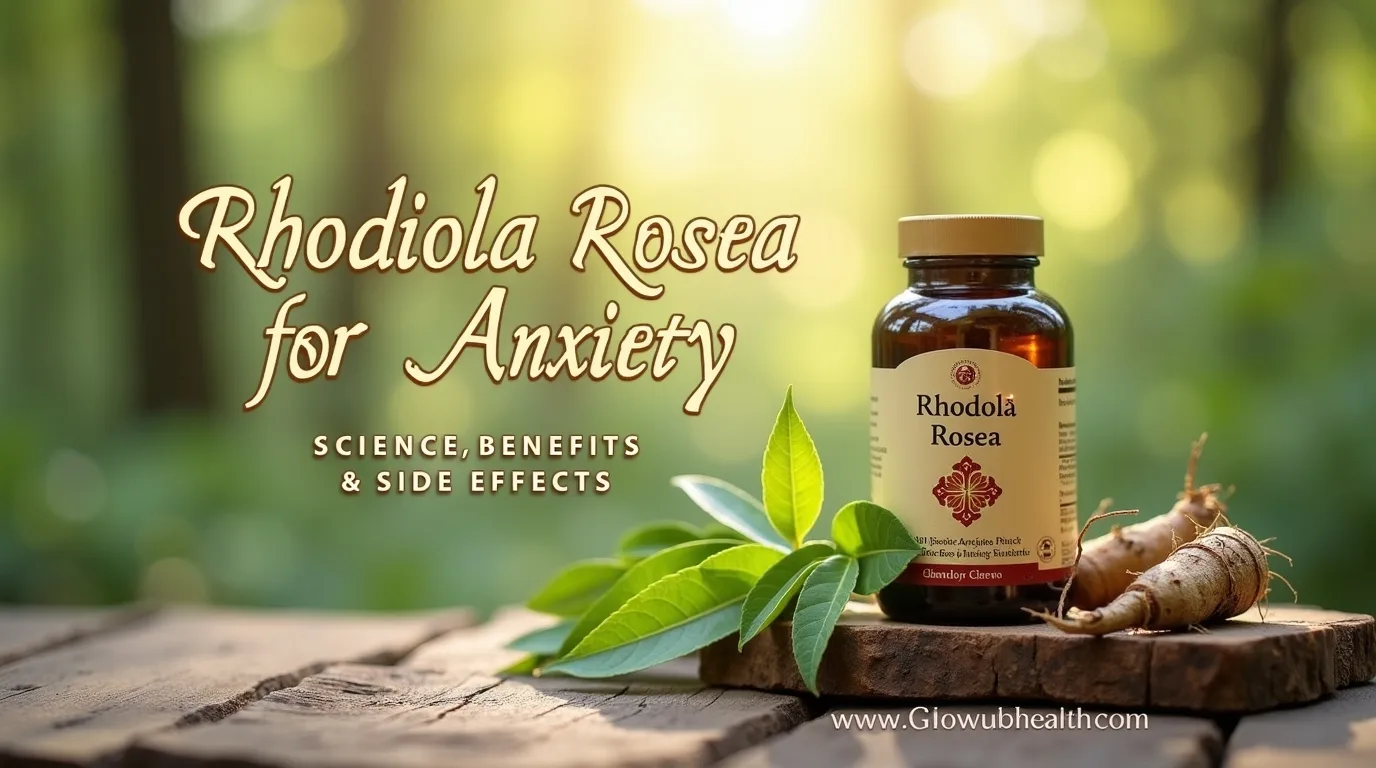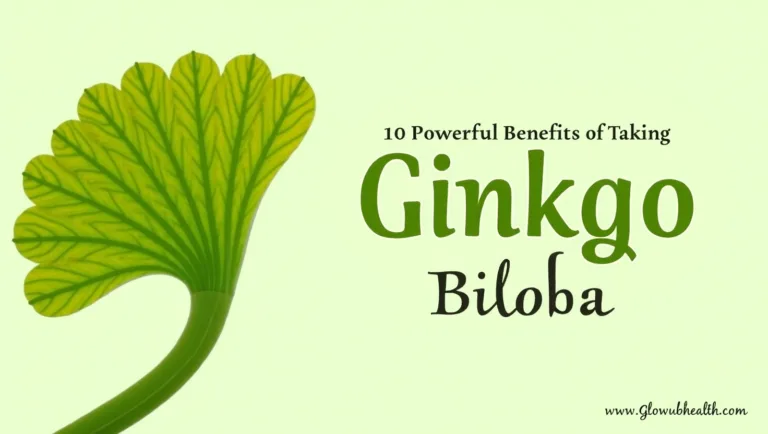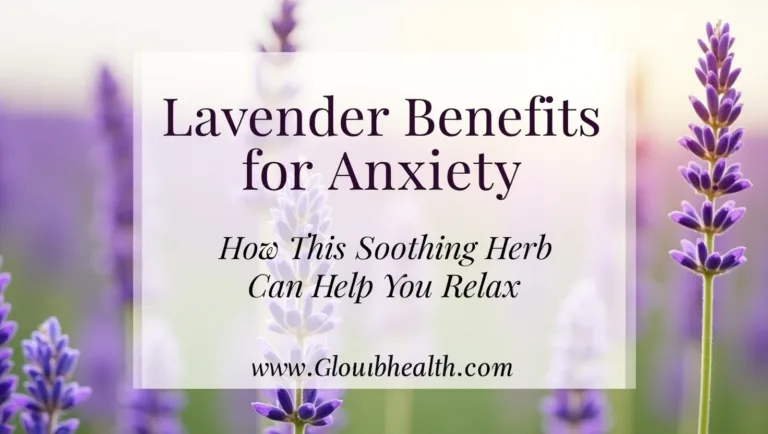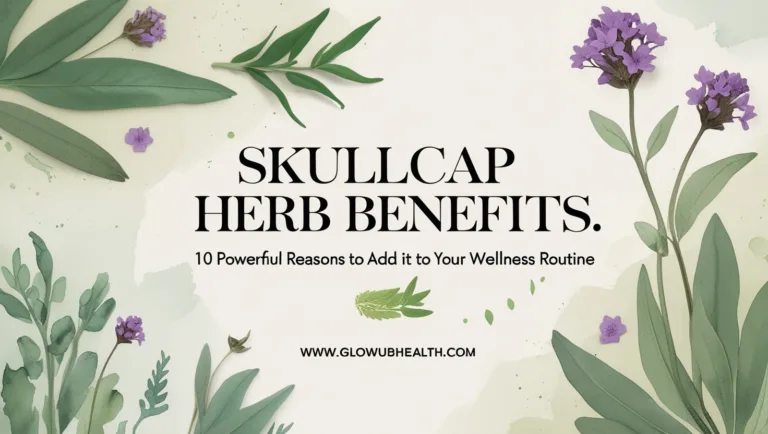Rhodiola Rosea for Anxiety : A Deep Dive Into the Science, Benefits, and Side Effects
Anxiety can feel overwhelming—especially in today’s fast-paced world. Many are now turning to natural alternatives to manage stress and anxiety, and one herbal remedy gaining attention is Rhodiola Rosea. In this article, we’ll explore whether Rhodiola Rosea truly eases anxiety, drawing on scientific research, traditional wisdom, and real-life experiences.
If you’ve been curious about using Rhodiola Rosea for anxiety relief, read on for an evidence-based deep dive into its benefits, mechanisms, potential side effects, and practical applications.
This content is for informational purposes only and is not a substitute for professional medical advice, diagnosis, or treatment. Always consult your healthcare provider before starting any herbal supplement, including Rhodiola Rosea
Introduction
Do you find yourself battling anxious thoughts and endless stress? In recent years, there has been a surge in interest for natural remedies that help ease anxiety without the side effects of synthetic pharmaceuticals. Among the many herbs available, rhodiola rosea for anxiety has emerged as a popular choice for those looking for a holistic approach to well-being.
Rhodiola, often referred to as the “golden root” or “arctic root,” has been used traditionally by Eastern European and Asian cultures to combat fatigue, enhance physical endurance, and manage stress. But what does modern science say about its effectiveness for anxiety? And how do its benefits stack up against any potential side effects?
This article will answer these questions by examining the scientific evidence, delving into practical usage, and sharing real-life experiences. Whether you’re considering trying Rhodiola Rosea or are simply intrigued by its benefits, this guide offers a clear and informative perspective.
This content is for informational purposes only and is not a substitute for professional medical advice, diagnosis, or treatment.
Understanding Anxiety: Causes and Impacts
Before diving into the specifics of Rhodiola Rosea, it’s important to understand what anxiety is, what causes it, and its impact on everyday life.
What Is Anxiety?
Anxiety is a natural emotional response to stress or danger. However, when anxiety becomes persistent, overwhelming, and interferes with daily functioning, it can develop into an anxiety disorder. Common symptoms include:
- Persistent worry or fear
- Restlessness
- Irritability
- Difficulty concentrating
- Physical symptoms such as a racing heart or muscle tension
Causes of Anxiety
The roots of anxiety can be multifaceted and include:
- Genetic predisposition: Family history may increase the likelihood of developing anxiety.
- Environmental triggers: Stressful life events, work-related pressures, and relationship challenges can contribute.
- Biochemical factors: Imbalances in neurotransmitters like serotonin and dopamine affect mood regulation.
- Lifestyle habits: Lack of sleep, poor nutrition, and sedentary behavior can exacerbate anxiety.
The Impact of Anxiety
Anxiety can have significant effects on an individual’s quality of life, including:
- Physical Health: Chronic anxiety is linked to high blood pressure, heart disease, and other stress-related illnesses.
- Mental Health: It can lead to depression and other mental health disorders.
- Daily Functioning: Anxiety often disrupts sleep patterns, work productivity, and social interactions.
Understanding these factors highlights why many people are searching for natural ways to manage their symptoms—bringing us to the potential role of Rhodiola Rosea.
What is Rhodiola Rosea?
Rhodiola Rosea is an adaptogen, a natural substance known for helping the body resist physical, chemical, and biological stress. Native to the high mountainous regions of Europe and Asia, this herb has been used for centuries for its stamina-enhancing properties.
Historical and Traditional Uses
Traditionally, communities in Russia and Scandinavia used Rhodiola Rosea to:
- Enhance physical endurance and combat fatigue
- Increase resilience during long winters and challenging conditions
- Improve mental performance under stress
Modern Applications
Today, Rhodiola is increasingly popular among:
- Athletes: To boost physical performance and recovery
- Students: To improve focus during demanding periods
- Professionals: To combat work-related stress and mental fatigue
Active Compounds
The efficacy of Rhodiola Rosea is attributed to several bioactive compounds, including:
- Rosavins: Believed to contribute to its adaptogenic and mood-enhancing properties.
- Salidroside: Known for its antioxidant and neuroprotective benefits.
These compounds work together to help balance the body’s stress response—leading us to explore how they might ease anxiety.
Scientific Evidence: Does Rhodiola Rosea Ease Anxiety?
Mechanism of Action
1. Regulation of Neurotransmitters
Rhodiola may help balance neurotransmitters involved in mood regulation, such as serotonin and dopamine. By influencing these chemical messengers, the herb is thought to stabilize mood and reduce anxiety symptoms.
2. Impact on the HPA Axis
The hypothalamic-pituitary-adrenal (HPA) axis plays a pivotal role in the stress response. Rhodiola Rosea is believed to help modulate the HPA axis, ensuring that cortisol—the body’s primary stress hormone—remains at healthy levels. Lower cortisol levels can lead to reduced anxiety and improved mood stability.
Review of Key Studies
Study from the Karolinska Institute
A notable study conducted by researchers at the Karolinska Institute in Sweden examined the effect of Rhodiola on stress-related fatigue and anxiety. The study found that participants taking a standardized extract of Rhodiola reported reduced stress symptoms, enhanced well-being, and improved cognitive functions under stress. These results suggest that Rhodiola Rosea may be beneficial for individuals who experience anxiety triggered by chronic stress.
Research from the University of Bergen
Researchers at the University of Bergen in Norway conducted a randomized controlled trial to assess Rhodiola’s impact on mental health. They observed significant reductions in anxiety and fatigue among those who took the supplement compared to the placebo group. This study bolstered the view that Rhodiola acts as an effective adaptogen for managing stress and anxiety.
Clinical Insights from Russian Studies
Several Russian clinical trials have also noted improvements in overall mental performance and reduced anxiety symptoms with Rhodiola supplementation. Although some of these studies have limitations, the consistent findings across different regions lend credibility to its efficacy.
Credible Publications and Journals
- Phytomedicine Journal: Several articles published here detail the positive effects of adaptogens like Rhodiola on mood disorders.
- Journal of Ethnopharmacology: This journal has numerous studies on traditional herbs, including Rhodiola, emphasizing its long-standing role in alleviating stress and fatigue.
Benefits of Taking Rhodiola
When considering natural remedies, it’s essential to weigh the benefits and potential side effects. The benefits of taking rhodiola have been well-documented, especially for those struggling with anxiety. Below, we list the key advantages:
Mental and Cognitive Benefits
- Reduced Anxiety: Rhodiola Rosea can help lower anxiety levels by modulating the body’s stress response and stabilizing neurotransmitter levels.
- Enhanced Mood: Many users report an overall improvement in mood and mental clarity, thanks to its adaptogenic properties.
- Increased Focus and Concentration: By reducing mental fatigue, Rhodiola may improve cognitive functions, making it ideal for students and professionals alike.
Physical Benefits
- Increased Energy Levels: This herb is known to combat fatigue and boost energy without the jitters associated with caffeine.
- Improved Physical Endurance: Athletes often use Rhodiola to enhance performance during strenuous activities.
- Enhanced Recovery: Faster recovery from physical and mental stress is another benefit, supporting overall well-being.
Holistic Benefits
- Adaptogenic Support: The key appeal of Rhodiola is its ability to help the body adapt to stress. This means that rather than just masking symptoms, it supports your body’s natural response to stressful situations.
- Natural Alternative: For those who prefer herbal remedies over pharmaceutical treatments, Rhodiola offers a natural option with a long history of use.
Addressing Rhodiola Side Effects and Anxiety Concerns
Practical Applications: How to Use Rhodiola Rosea for Anxiety Relief
Having explored the scientific rationale and benefits, let’s turn to how you can practically incorporate Rhodiola into your routine for anxiety relief.
Forms of Rhodiola Supplementation
Rhodiola Rosea is available in several forms, including:
- Capsules and Tablets: The most common form, offering a precise dosage.
- Liquid Extracts: These allow for flexible dosing and are absorbed quickly.
- Teas: Some prefer to brew Rhodiola as a tea, though the concentration of active compounds may vary.
Dosage Guidelines
Proper dosing is key to maximizing benefits while minimizing side effects:
- General Recommendations: Studies have shown that doses ranging from 200–600 mg per day of a standardized extract are effective.
- Personalizing Your Dose: Start at the lower end (around 200 mg) and gradually increase as needed. Individual responses can vary, so monitoring how you feel is crucial.
- Consultation: Always discuss with a healthcare provider, especially if you are pregnant, nursing, or on other medications.
A Day in the Life: A Mini Case Study
Case Study:
Sarah, a 40-year-old marketing professional, struggled with anxiety, especially during her high-stress work periods. After reading about the potential benefits of Rhodiola Rosea, she decided to try a 200 mg capsule every morning. Within a few weeks, Sarah noticed:
- Reduced Anxiety: Her morning jitters and midday stress lessened.
- Improved Focus: Work meetings and client interactions became less overwhelming.
- Better Energy: Her overall energy level improved without relying on caffeine.
Sarah’s experience reflects many testimonials from users who have integrated Rhodiola into their daily routines as a supportive measure for anxiety.
Practical Tips for Integration
- Morning Routine: Incorporate your Rhodiola supplement into a morning routine that might include meditation or a healthy breakfast.
- Journal Your Experience: Keep a daily log to track any changes in mood, anxiety levels, or side effects.
- Combine with Lifestyle Changes: Remember that supplements work best alongside a balanced diet, regular exercise, and proper sleep.
Real-Life Experiences and Personal Insights
Many individuals transitioning to natural remedies share similar journeys. For instance, John, a 42-year-old entrepreneur, noted that after adding Rhodiola to his routine, his energy levels were more consistent, and his afternoon anxiety notably decreased. These anecdotal accounts, while not a substitute for clinical data, underscore the growing body of positive feedback on using Rhodiola for anxiety.
Comparisons with Other Natural Remedies
While Rhodiola Rosea offers promising benefits, it’s helpful to compare it with other natural remedies for anxiety to help you decide which might best suit your needs.
Ashwagandha
- Similarities: Both are adaptogens that help reduce stress and anxiety.
- Differences: Ashwagandha is often noted for its calming effects and is used more traditionally for sleep support and overall stress reduction.
L-Theanine
- Calming Effects: Often found in green tea, L-Theanine promotes relaxation without causing drowsiness and is sometimes used in conjunction with Rhodiola.
- Complementary Use: Some users take both, benefiting from the energizing effects of Rhodiola and the calming benefits of L-Theanine.
Valerian Root
- Sedative Properties: Unlike Rhodiola, which is primarily adaptogenic, Valerian Root acts as a sedative and is more frequently used to treat sleep disturbances.
- Usage: Valerian is generally taken in the evening, whereas Rhodiola is best consumed in the morning.
Choosing the Right Remedy
Your choice ultimately depends on your symptoms and lifestyle:
- For Energy and Focus: Rhodiola Rosea is a great option.
- For Sleep and Deep Calm: Ashwagandha or Valerian Root might be more appropriate.
- For Combined Effects: A combination of adaptogens under professional guidance can be beneficial.
Safety, Interactions, and Considerations
While exploring the benefits of taking rhodiola, it’s crucial to acknowledge safety and interaction issues. This section will help you understand how to safely integrate Rhodiola Rosea into your regimen.
Who Should Avoid Rhodiola?
- Individuals with Bipolar Disorder: Some studies suggest that adaptogens may exacerbate certain symptoms.
- People on Prescription Medications: If you are taking antidepressants or other psychiatric medications, consult your doctor before starting Rhodiola.
Potential Drug Interactions
- Antidepressants and Stimulants: Because Rhodiola influences neurotransmitter activity, it should be used with caution when combined with other medications that affect serotonin or dopamine.
- Herbal Combinations: When taking multiple herbal supplements, pay attention to overlapping effects, particularly those that may overly stimulate the nervous system.
Guidelines for Safe Use
- Consultation: Always speak with a healthcare provider prior to beginning any new supplement, particularly if you have preexisting conditions.
- Quality of Supplements: Choose standardized extracts from reputable manufacturers to ensure consistency and safety.
- Monitoring: Keep track of your body’s response to the supplement, and adjust dosage as needed.
Clinical Recommendations
Healthcare professionals often recommend starting with a conservative dose and monitoring progress for 4–6 weeks before making any changes. This trial period helps determine whether the supplement suits your body’s unique needs.
How to Integrate Rhodiola Rosea into Your Wellness Routine
For many seeking natural ways to ease anxiety, integrating Rhodiola Rosea into a holistic wellness approach can be beneficial. Here’s a step-by-step guide to doing just that:
Step 1: Establish a Baseline
- Assess Your Symptoms: Understand your level of anxiety by tracking your moods and stress triggers.
- Consult a Professional: Speak with a healthcare provider to rule out any contraindications or underlying conditions.
Step 2: Start Supplementation
- Choose the Right Form: Capsules, liquid extracts, or teas—all have pros and cons. Capsules offer convenience and exact dosing.
- Follow Dosage Guidelines: Start with a lower dose, such as 200 mg per day, and gradually increase if needed.
- Consistency is Key: Give the supplement at least one month to evaluate its impact on your anxiety levels.
Step 3: Combine with Lifestyle Practices
- Mindfulness and Meditation: Implement stress-reduction techniques like mindfulness or yoga to enhance the supplement’s benefits.
- Exercise Regularly: Physical activity is proven to boost mood and reduce anxiety.
- Healthy Diet: A balanced diet rich in omega-3 fatty acids, antioxidants, and vitamins supports overall mental health.
Step 4: Monitor and Adjust
- Keep a Journal: Document your daily experiences and any shifts in anxiety levels.
- Review with a Healthcare Provider: After a trial period, discuss your findings with your doctor to decide on continued use or adjustments.
Real-Life Testimonials and Mini Case Studies
Hearing personal stories can be incredibly validating. Here are a few mini case studies based on reported experiences:
Case Study 1: Emily’s Journey
Emily, a 38-year-old freelance writer, experienced heightened anxiety due to tight deadlines and isolation. After incorporating a 200 mg Rhodiola capsule every morning:
- Within Two Weeks: Emily noticed a subtle yet significant reduction in her anxiety levels.
- Long-Term Improvements: Over two months, her mood stabilized, and her productivity increased. Emily emphasizes that while Rhodiola isn’t a “magic pill,” it significantly complements her other stress management techniques, such as regular exercise and meditation.
Case Study 2: Mark’s Experience
Mark, a 45-year-old manager, dealt with chronic workplace stress that often escalated into full-blown anxiety:
- Trial Period: He began with a low dose of Rhodiola and paired it with mindfulness practices.
- Observations: Mark found that his anxiety spikes diminished in frequency, and his overall mental clarity improved. Mark’s experience supports scientific observations that emphasize the role of adaptogens in improving focus and mitigating stress.
Incorporating Personal Experiences
Personal testimonials like these highlight the practical benefits of Rhodiola Rosea and serve as relatable evidence for readers considering natural alternatives.
Conclusion
In today’s world of chronic stress and overwhelming responsibilities, finding natural solutions to manage anxiety is more important than ever. Rhodiola rosea for anxiety not only offers an intriguing possibility supported by scientific research but also ties back to centuries of traditional knowledge.
If you’re ready to explore a natural alternative to manage anxiety, consider trying Rhodiola Rosea as part of your holistic health regimen. Remember, no remedy works in isolation—combine its use with proven lifestyle techniques like mindfulness, a balanced diet, and regular exercise for optimal results.
Take Action Today:
Consult a healthcare provider about integrating Rhodiola into your daily routine, and monitor your progress. Share your experiences with friends and loved ones who might also benefit from this natural approach to stress relief. And if you found this article useful, please consider subscribing to our blog for more science-backed insights on natural remedies.
Final Thoughts
Rhodiola Rosea has emerged as one of the most promising natural remedies for managing anxiety. While it may not be a cure-all, its adaptogenic properties can help support the body’s natural response to stress, making it a valuable tool for those seeking alternative and complementary therapies.
With continued research and growing anecdotal evidence, Rhodiola stands at the intersection of tradition and modern health science—a testament to nature’s enduring potential to heal.
FAQ
🔹 1. What is Rhodiola Rosea used for?
Rhodiola Rosea is traditionally used as an adaptogen — a natural substance that helps the body adapt to stress. People often take it for reducing anxiety, boosting energy, improving focus, and enhancing overall mood and resilience.
🔹 2. Can Rhodiola Rosea really help with anxiety?
Yes, several studies suggest that Rhodiola Rosea may reduce symptoms of anxiety, especially mild to moderate cases. It works by supporting the adrenal system and balancing neurotransmitters like serotonin and dopamine, which are linked to mood regulation.
🔹 3. How long does it take for Rhodiola to work for anxiety?
Some users report improvements in energy and mood within a few days, while clinical benefits for anxiety may take 2–4 weeks of consistent use. However, this can vary depending on dosage, product quality, and individual response.
🔹 4. What are the side effects of taking Rhodiola Rosea?
Most people tolerate Rhodiola well, but possible side effects include:
Irritability or restlessness (especially with high doses)
Dry mouth
Dizziness or jitteriness
Trouble sleeping (if taken late in the day)
Always start with a low dose and consult a healthcare provider if you have preexisting conditions.
🔹 5. Is Rhodiola Rosea safe to take daily?
For most healthy adults, yes, Rhodiola can be taken daily for short to moderate durations (e.g., 6–12 weeks). For long-term use, it’s recommended to cycle it (e.g., 5 days on, 2 days off), and always under medical supervision.
🔹 6. Can I combine Rhodiola Rosea with other anxiety medications or supplements?
Caution is advised. Rhodiola may interact with antidepressants, anti-anxiety medications (like SSRIs), or other adaptogens. Consult a physician before combining it with any medication or supplement.
🔹 7. What is the best time of day to take Rhodiola Rosea?
Morning or early afternoon is ideal, as Rhodiola can be mildly stimulating. Taking it late in the day may interfere with sleep.
🔹 8. Is Rhodiola Rosea approved by the FDA for anxiety treatment?
No, Rhodiola is not FDA-approved as a drug for treating anxiety or any condition. However, it’s available as a dietary supplement and is widely used for its adaptogenic effects.
🔹 9. Can pregnant or breastfeeding women take Rhodiola Rosea?
It’s not recommended. There’s limited research on its safety during pregnancy or breastfeeding, so it’s best to avoid unless advised by a doctor.
🔹 10. What is the recommended dose of Rhodiola Rosea for anxiety?
Typical dosages for anxiety range from 200 mg to 600 mg per day, standardized to contain 3% rosavins and 1% salidroside. Start low and adjust based on response and tolerance.






